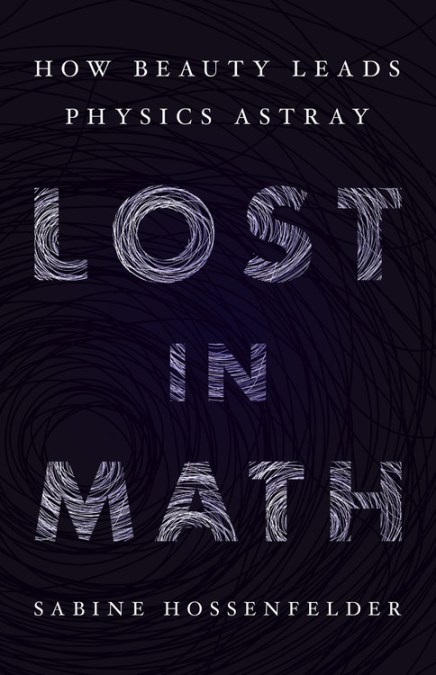 With her publisher’s permission, Sabine Hossenfelder is making Appendix C of her book Lost in Math: How Beauty Leads Physics Astray, available at her blog: This bit of that excerpt is addressed to the science-minded public:
With her publisher’s permission, Sabine Hossenfelder is making Appendix C of her book Lost in Math: How Beauty Leads Physics Astray, available at her blog: This bit of that excerpt is addressed to the science-minded public:
As a science writer or member of the public, ask questions:
● You’re used to asking about conflicts of interest due to funding from industry. But you should also ask about conflicts of interest due to short-term grants or employment. Does the scientists’ future funding depend on producing the results they just told you about?
● Likewise, you should ask if the scientists’ chance of continuing their research depends on their work being popular among their colleagues. Does their present position offer adequate protection from peer pressure?
● And finally, like you are used to scrutinize statistics you should also ask whether the scientists have taken means to address their cognitive biases. Have they provided a balanced account of pros and cons or have they just advertised their own research?
You will find that for almost all research in the foundations of physics the answer to at least one of these questions is no. This means you can’t trust these scientists’ conclusions. Sad but true. Sabine Hossenfelder, “Science has a problem. Here is how you can help.” More. – Reprinted from Lost In Math by Sabine Hossenfelder. Copyright © 2018. Available from Basic Books, an imprint of Perseus Books, a division of PBG Publishing, LLC, a subsidiary of Hachette Book Group, Inc
at BackRe(Action)
What if these standards were applied to biology? …
Whoops. That sound you just heard was three tenured Darwin trolls’ heads exploding. We almost wish.
Follow UD News at Twitter!
See also, featuring Sabine Hossenfelder: Cosmic inflation is overblown
Is science harmed by an illusion of progress? Tellingly, Hossenfelder adds, “So here is the puzzle: Why can you not find any expert, besides me, willing to publicly voice criticism on particle physics? Hint: It’s not because there is nothing to criticize. ”
Physics Problems That Lead To Breakthroughs Arise From Inconsistencies In Data, Not Beautiful Math
and
Theoretical Physicist Sabine Hossenfelder Shares Her Self-Doubts About Exposing Nonsense In Cosmology